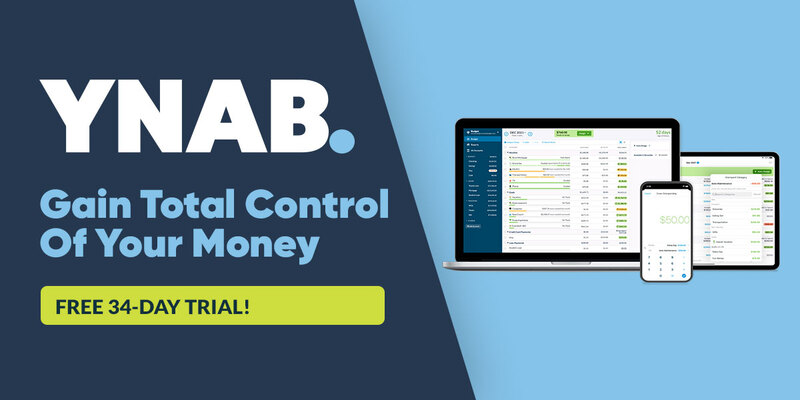Debit Card Online Benefits
People tend to have quite distinct comfort zones when it comes to the amount of money they spend. You may be a cash person who values privacy more than convenience.
Susan Kelly
Feb 16, 2023
Managing finances can be a challenging task, but technology has made it easier than ever before. There are many financial apps available that can help individuals budget, save money, and make smart spending decisions. These apps provide a range of tools and features that make it easier to track expenses, create a budget, set savings goals, and make informed financial decisions. From basic budgeting tools to more advanced financial planning, these apps are designed to meet the needs of individuals at all stages of their financial journey. Whether you're looking to take control of your finances for the first time or looking for new ways to optimize your spending and saving, these top financial apps for budgeting, saving, and smart spending are great places to start.
Mint is a comprehensive budgeting app that offers users a full view of their financial situation. It pulls information from users' accounts, including bank accounts, credit cards, and investment accounts, to provide a clear picture of their spending, income, and net worth. Mint also includes a budgeting tool that helps users track their spending and set financial goals. This app is free and available on both iOS and Android platforms.

The "You Need A Budget" (YNAB) budgeting program encourages users to stick to a strict financial plan. The app's purpose is to empower users to set spending priorities in accordance with their own beliefs and long-term objectives. With YNAB's zero-based budgeting approach, every dollar is allocated and accounted for. You may use the app risk-free for a month before committing to paying the app's monthly fee of $11.99 or the annual fee of $84. There are iOS and Android versions of it.
Personal Capital is a budgeting and investment management app that offers users a comprehensive view of their financial situation. The app integrates with users' accounts, including bank accounts, credit cards, and investment accounts, to provide a clear picture of their spending, income, and net worth. Personal Capital offers budgeting, investment management services, and financial planning tools. The app is free and available on both iOS and Android platforms.
Digit is a saving app that focuses on helping users save small amounts of money automatically. The app connects to a user's bank account and analyzes their spending habits to determine how much they can afford to save. Digit transfers small money from the user's account into a savings account. The app also includes tools for tracking savings goals and monitoring progress. Digit costs $5 per month and is available on both iOS and Android platforms.
Qapital is a saving app that helps users save money through automation and goal-setting. The app allows users to set savings goals, such as a down payment on a house or a vacation, and then automatically transfers money from their checking account into a savings account. Qapital also includes tools for tracking savings progress and encouraging users to stick to their savings goals. The app is free and available on both iOS and Android platforms.
The Acorns app is designed to help people save and invest modest sums of money automatically. The user's spare change from purchases is automatically invested in an ETF portfolio by the app (ETFs). To help users keep tabs on their savings and investments, Acorns provides a number of useful dashboards and reports. The app is accessible on both iOS and Android devices for a monthly fee of $1 for balances of less than $1 million.

Clarity Money is a smart spending app that helps users track their spending, identify areas where they can cut costs, and make better financial decisions. The app connects to a user's bank account to provide a comprehensive view of their spending and includes tools for managing subscriptions, canceling unwanted services, and finding better deals. Clarity Money also offers budgeting tools and personalized financial advice. The app is free and available on both iOS and Android platforms.
Robinhood is an intelligent spending software that gives users access to the stock market, cryptocurrency exchanges, and other investment opportunities. The app's user-friendliness and lack of trading fees have made it a favorite among new investors. In addition to the usual social networking features, Robinhood also provides users with investment tracking and market trend monitoring tools. You may get this software for free and use it on your iPhone or Android device.
Level Money is a smart spending app that provides users with a simple and intuitive way to manage their money. The app connects to a user's bank account and provides a clear picture of their spending, income, and net worth. Level Money also includes tools for tracking spending and creating a budget, personalized financial advice, and suggestions for saving money. The app is free and available on both iOS and Android platforms.
In conclusion, financial apps can be a valuable resource for individuals looking to take control of their finances. Whether a beginner or an experienced investor, these apps offer a range of tools and features that can help you budget, save money, and make smart spending decisions. By choosing the right financial app, you can simplify your financial life, reach your goals faster, and enjoy greater peace of mind.
Debit Card Online Benefits
People tend to have quite distinct comfort zones when it comes to the amount of money they spend. You may be a cash person who values privacy more than convenience.
What Is Discretionary Income: A Complete Understanding
Discretionary income is the amount of money left over after obligatory expenses have been met. It includes taxes, rent, groceries, utilities, and transport.
What Distinctions Exist Between Discover and American Express and Visa and Mastercard
You don't have a Visa or Mastercard account. The bank issues you a monthly statement, processes your payments, credits you with points, and so on and so forth. In contrast, both Discover and American Express handle transaction processing and card issuance internally.
Who Can Check Your Credit Report and Score
There are a lot of people besides prospective lenders that can look into you. Potential employers, as well as insurers, may see your report or score.



